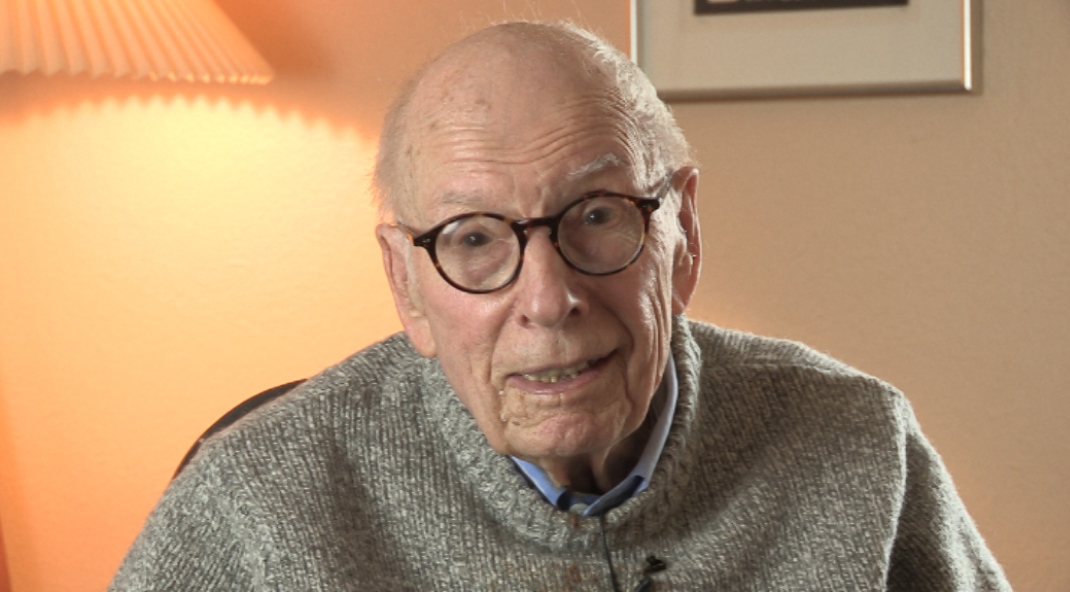NEXT STORY

Physics of shapes appeals to everyone
RELATED STORIES

NEXT STORY

Physics of shapes appeals to everyone
RELATED STORIES


|
Views | Duration | |
|---|---|---|---|
| 41. Like rewriting Hamlet! | 30 | 04:49 | |
| 42. Physics of shapes appeals to everyone | 35 | 00:38 | |
| 43. An unusual birthday present | 31 | 01:59 | |
| 44. Roy Chapman Andrews - the real Indiana Jones | 60 | 02:38 | |
| 45. Collecting mosquitoes puts me off applied biology for life | 37 | 01:29 | |
| 46. A very different part of America | 40 | 01:04 | |
| 47. My very happy marriage | 91 | 01:54 | |
| 48. Alzheimer's disease | 83 | 01:03 | |
| 49. A Eureka moment in the lab | 40 | 01:43 | |
| 50. Learning molecular biology from the roots | 42 | 02:47 |


The book [On Growth and Form] was published in 1917, by D'Arcy Wentworth Thompson who was a professor of biology, I guess - I don't know what exactly, natural history, probably - at St Andrew's in Scotland. And he was an extraordinary man because in the first place, he was a distinguished classical scholar. So Oxford translations of Aristotle, for instance, on the history of birds, or the history of fishes, and well, four of them, he translated. And so if you go to ask for the Oxford edition that's what you get. And he also was a very good mathematician. But as far as I'm concerned, his crowning accomplishment is that he wrote the most beautiful prose. [Peter] Medawar once referred to his prose as bel canto. I think that's just exactly right. And he wrote this book in 1917 which became very famous for lots of reasons. And then he wrote a second edition which was twice as long and really, not as satisfactory by any means. So the Cambridge Press asked me if I would do an abridged edition and I said sure, why not? And not realizing what a terrific job it was going to be because it was like asking someone to rewrite Hamlet only make it two-thirds as long, and that's difficult. And anyhow, I did it and it was really in the long-run rewarding; it was a lot of fun after it was finished. And I had interesting relations with the Cambridge Press, too, because after it had been out for a year, I was teaching a course which we used it as a text and a young woman came to me - Princeton, at that time was all male, no women - came to me and asked me if she could sit in on my course. And I said, sure. And it turned out that she was the daughter of a famous classical scholar, Bromer, and she brought the book home and he read it, and - he was visiting at the Institute for Advanced Study, just for a year - and she brought the book home, and he started looking at it. And he sent me a message through her, namely that there were quite a few errors in the footnotes, particularly in the Greek, and some of the other languages. And so what happened was that just then, I got a letter from Cambridge Press saying, they were reprinting. And if I know of any errors, please… And so I said to Bettina, I said, 'Bettina, I want to scheme with your father. I told her about this and I told her that Cambridge Press is really kind of snooty about the whole business of Americans messing up a classic. And so I said, what I want to ask your father to do, if he will, and that is to just send me the corrections and I'll pass them on, as though they were my corrections. And he thought it was a great idea and so that's exactly what we did. And it really is literally true that the tone of the letters from Cambridge Press changed considerably.
John Tyler Bonner (born in 1920) is an emeritus professor in the Department of Ecology and Evolutionary Biology at Princeton University. He is a pioneer in the use of cellular slime molds to understand evolution and development and is one of the world's leading experts on cellular slime molds. He says that his prime interests are in evolution and development and that he uses the cellular slime molds as a tool to seek an understanding of those twin disciplines. He has written several books on developmental biology and evolution, many scientific papers, and has produced a number of works in biology. He has led the way in making Dictyostelium discoideum a model organism central to examining some of the major questions in experimental biology.
Title: Like rewriting "Hamlet"!
Listeners: Christopher Sykes
Christopher Sykes is an independent documentary producer who has made a number of films about science and scientists for BBC TV, Channel Four, and PBS.
Tags: On Growth and Form, Cambridge Press, D’Arcy Wentworth Thompson
Duration: 4 minutes, 49 seconds
Date story recorded: February 2016
Date story went live: 14 September 2016